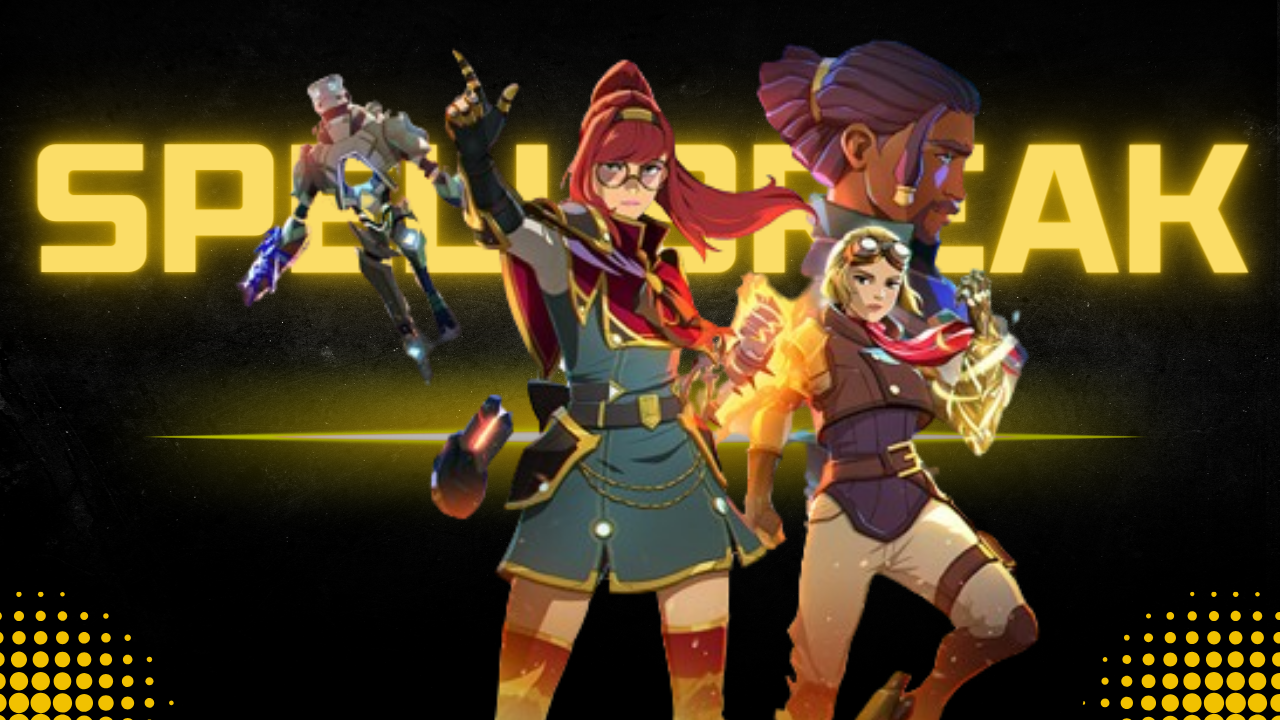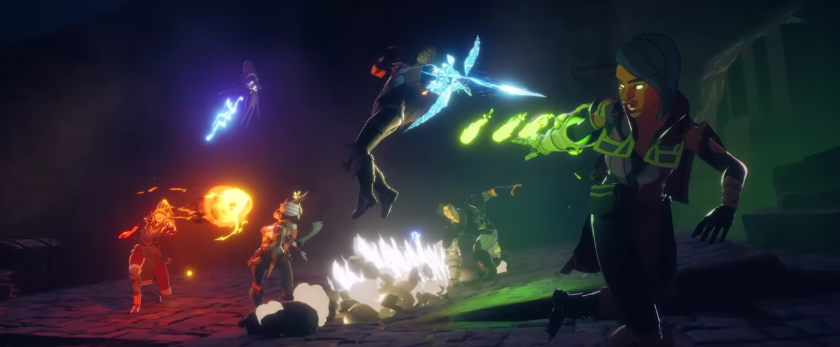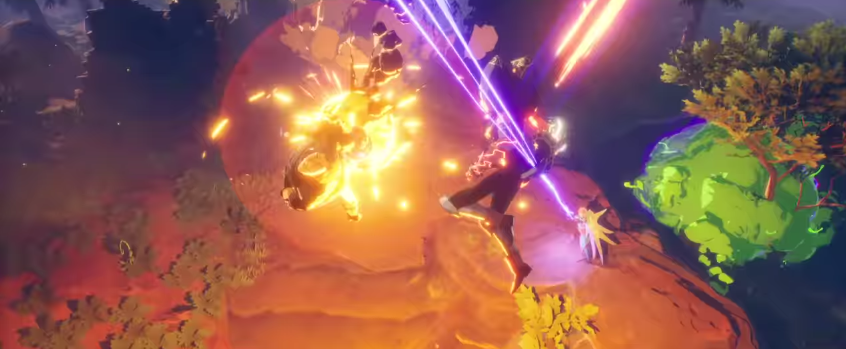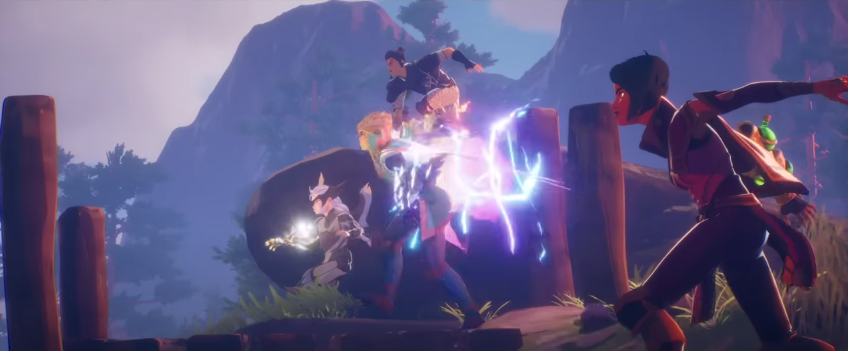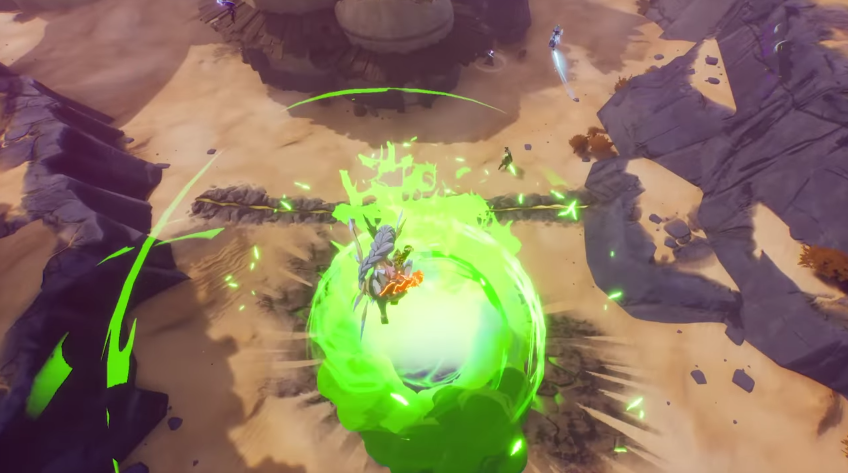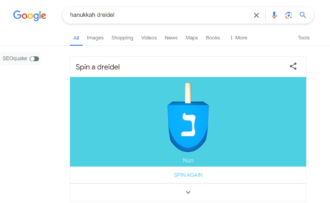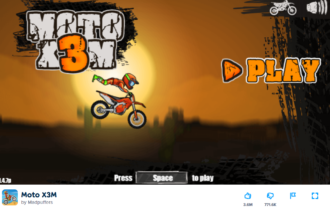Spellbreak: An Enchanted Reimagining of Battle Royale
- 1 A Magical Universe
- 1.1 Select Your Magic
- 1.2 RPG Advancement
- 1.3 The Excitement of Combat Royale
- 1.4 Where the Enchantment Ends
- 1.5 Enchantment That Makes You Want Moore
- 1.6 Using a lightning bolt on a tornado generates a superstorm
- 1.7 Spellbreak departs from precedent in significant and often frustrating ways
- 1.8 The huge map lacks visual variation
- 2 Conclusion
In Short
- With magical flare, vibrant cel-shaded images bring the fantastical world to life.
- Combining elemental gauntlets with an innovative magic system allows for the creation of endless spell combinations.
- RPG advancement offers great gameplay customization through skill trees, abilities, and gear.
- It is a large area with beautiful backdrops, but it seems barren due to the low player population of 42.
- Fast-moving battle royale bouts get chaotic as lethal storms approach and magic shoots.
With giants like Fortnite and Apex Legends controlling the scene, the battle royale genre has seen explosive popularity in recent years. However, with its distinct magical combat system, Proletariat’s latest free-to-play game, Spellbreak, seeks to stand out in the sea of “loot and shoot” games. Does it possess the magic to make a difference in the crowd?
A Magical Universe
In the colourful cel-shaded fantasy world of Spellbreak, you take on the role of a battlemage shunned by society for violating his oaths. The background establishes a depressing post-apocalyptic world reminiscent of Breath of the Wild. Thanks to the mesmerizing symphonic music that complements the images, every flaming combat feels grand. It’s a gorgeously depicted world with ghostly castles and barren badlands that are the background for your magical duels.
Select Your Magic
Spellbreak is innovative mainly because of its magic mechanism. At the beginning of each battle, you choose your gauntlet or main elemental magic, such as fire, frost, lightning, etc.. However, as you plunder, you can equip a second gauntlet, mixing materials for twisted results. Fling enormous flaming rocks by fusing stone and fire. Threaten adversaries with poisonous clouds charged by lightning bolts. The combinations, which consist of six elements altogether, promote ingenuity and planning. Some, like ice and lightning, cause enormous damage but need precise targeting. Some, like fire and wind, have wide spell zones that may catch adversaries running away. Success requires the ability to combine two parts successfully.
RPG Advancement
Classic RPG growth mechanics uncommon in battle royales surround the magic system. Before every battle, you can personalize your passive abilities and boosts via talent trees. Along the way, you’ll find upgrade runes that provide you access to solid mobility abilities like flying, teleport dashes, and invisibility. There’s no shortage of space to craft a variety of mage builds. As armour sets and titles become available through gameplay and levelling up gauntlet mastery, cosmetics further demonstrate your commitment. Additionally, you spend experience on long-term benefits based on your preferred style of play after a match. These systems provide RPG enthusiasts with a fulfilling sense of advancement.
The Excitement of Combat Royale
Spellbreak fundamentally follows the same competitive battle royale structure that has greatly increased the genre’s popularity. As a circle of lethal magic energy approaches, you descend onto the map, search for chest upgrades, and battle to remain the last person. There is a lot of strain since eliminated comrades cannot be revived. Spellbreak provides matches for solo, pair, and squad play; the latter two modes require close coordination between players. And every match eventually devolves into thrilling mayhem as magic tears over the sky. Battle Royale is revitalized when approached from a new magical angle.
Where the Enchantment Ends
Nevertheless, the experience is hampered by several drab design choices that Spellbreak’s inventive gameplay cannot fully overcome. Despite its colourful brilliance, the wide map is dull and empty. In addition, matches usually consist of lengthy, boring minutes of sprinting between vacant landmarks due to the maximum player count of 42, divided among solos, duos, and trios. In contrast to games like Call of Duty Warzone, which keeps players engaged through respawn systems, Spellbreak may sometimes have an extremely slow pace.
There is also a great deal of inconsistent play in the fights, with certain combos outclassed. Mage battles that should be exciting frequently terminate in seconds, leaving players perplexed about what transpired amid all the flashy fireworks. At times, defeating an adversary depends more on chance than ability. These issues may be improved with balancing adjustments, but as things are, they seriously detract from the fun.
Enchantment That Makes You Want Moore
In essence, Spellbreak innovates an overly saturated genre. Combining magic allows you to engage in imaginative combat in a unique fantasy setting. However, the game has several dull aspects, such as poor combat balancing and map pace. But with the right changes, Spellbreak might carve out a legitimate place among magic enthusiasts looking for games that go beyond traditional battle royale. Learning about the elements before unleashing deadly lightning storms or fierce tornadoes on your adversaries is enjoyable. If the idea appeals to you, Spellbreak is a worthwhile download that promises a captivating battle royale with intriguing new tricks under its mysterious, flowing sleeves.
Using a lightning bolt on a tornado generates a superstorm
Your class defines your dominant hand’s talents, so that’s only a start. Matches also provide gauntlets from other classes, enabling you to equip their skills. The Tempest can unleash a tornado, or the Toxicologist can distribute poisonous blobs to form a toxic cloud. Notably, combining tornado and lightning bolt spells generates a super-charged storm. Add environmental effects like ice strikes freezing the ground, and battle royale gaming is more dynamic and entertaining than ever. It’s similar to how Fortnite’s quick construction mechanisms in gunfights changed things. The sight of fireballs and lightning storms is breathtaking.
It seemed strange at first to throw fireballs instead of aiming an assault weapon as I glanced around corners. However, with repetition, it becomes buttery smooth and second nature. (I’ll play a few rounds next time I return to PUBG while I acclimate to reality.) Doing as little groundwork as possible can offer you a tremendous fighting advantage since even if they miss, you can still absorb splash damage from nearby ground.
Spellbreak departs from precedent in significant and often frustrating ways
Some battle royale games use a “blank slate” method, so you start on equal footing no matter how many hours you play. While looting and scavenging for stuff, you improve in each. Spellbreak departs from that tradition in significant and sometimes frustrating ways. There’s still a gear curve as you explore the environment and find objects, but your mage and class levels progressively improve as you play and get XP, rewarding you for your efforts.
As your Mage level rises, you’ll gain Gold, the in-game currency you may buy with real money, and nameplate backgrounds and badges. Class rank incentives are more tangible. As a cosmetic, a flying beacon with flames appears when Pyromancer reaches rank 5. At rank 6, you receive Fortitude, which summons a barrier bubble. Every class unlocks a talent at tiers 1, 3, and 6. Grinding rankings on classes you hate may be tiresome.
You can rapidly be surpassed by players who have gained more talents by spending more time than you, making levelling more tedious. If an older player has an advantage in fighting beyond their talent, the playing field is no longer even. Like other battle royales, you find gear by looting buildings, opening cheats, and killing other players. You can find boots that increase speed, amulets that increase your max mana for hovering and spellcasting, belts that increase armour, and other magical items.
The huge map lacks visual variation
Spellbreak’s battlefield is enormous, but a magical storm compresses it swiftly, and you’ll only have 35 to 40 people at a time; the limit is 42. I appreciate the speed of matches; players moving swiftly make the battlefield feel less barren. Unfortunately, it lacks visual variation. Even after dozens of hours of exploring, I doubt someone could close their eyes, drop somewhere random, and correctly identify where they are. Mountain, ridge, fort, and topography are practically comparable everywhere, which is a vulnerability.
| Pros | Cons |
| Cel-shaded fantasy realm with a captivating soundtrack. | The broad map feels vacant and the pace is off. |
| Unique elemental gauntlet invites strategy and inventiveness. | The massive map lacks visual variety. |
| Classic RPG boost and ability customization. | Outclassed combinations can terminate matches quickly. |
| Battle Royale with mystical aspects. | |
| An immersive supernatural atmosphere sets Spellbreak apart in the oversaturated genre. |
Conclusion
Spellbreak’s magical fighting system adds new features to battle royale. Its inventive combat and engaging fantasy setting let it stand out in a congested market dominated by Fortnite and Apex Legends. Its mystical setting, where players play a battlemage in a cel-shaded fantasy, is its strength. Symphonic music enhances magical duels, giving an immersive and visually spectacular experience.
The magic system, which allows players to mix elemental gauntlets for twisted effects, adds depth and strategy. Battle royales seldom enable players to create passive skills and boost through talent trees, although RPG advancement methods do. Spellbreak’s map design and tempo are problematic. Despite its brilliance, the broad map may feel monotonous and barren, requiring long sprints between points. The maximum of 42 players, split between solos, duos, and trios, slows the combat royale.
Combat is inconsistent, with certain combinations outclassed and encounters ending in seconds, confusing players. Resolving balance flaws might maximize the game’s appeal. Spellbreak reinvents an oversaturated genre with magical fighting and innovative conflicts in a fantastical environment. Despite its flaws, the game might appeal to magic fans looking for a change from battle royale. Spellbreak may become a thrilling magical battle royale with exciting new tricks with the appropriate changes.
FAQs
What distinguishes Spellbreak in battle royale?
Spellbreak’s magical fighting system allows players to mix elemental gauntlets for imaginative and strategic consequences. Unlike battle royales, the game has a rich fantasy setting and RPG progression systems.
How does Spellbreak magic work?
Players pick their main elemental magic—fire, ice, or lightning—before each combat. You can equip a second gauntlet to fuse elements for diverse and twisted effects as you loot. The six factors encourage combat strategy and inventiveness.
Spellbreak has what RPG elements?
Spellbreak uses skill trees to customize passive powers and boosts before battle. Upgrade runes unlock tremendous mobility abilities. Cosmetics, armour sets, and titles reflect player dedication and progress.
How does Spellbreak handle battle royales?
Spellbreak is a battle royale game where players drop onto the map, seek chests for upgrades, and fight to the death. Each solo, couple, or squad match becomes an exciting battle as magical powers fly across the skies.
What problems does Spellbreak face?
Spellbreak struggles with level design and tempo despite its unique gameplay. Long sprints between landmarks may result from the large map feeling empty. The 42-player maximum across modes slows the game. Certain combinations may look outclassed due to combat inconsistencies.
Spellbreak rewards player progression?
Spellbreak players earn Gold, nameplate backdrops, badges, and cosmetics. Class levels unlock skills and cosmetic upgrades, rewarding players. The game has been criticized for favoring long-term players in advancement.

